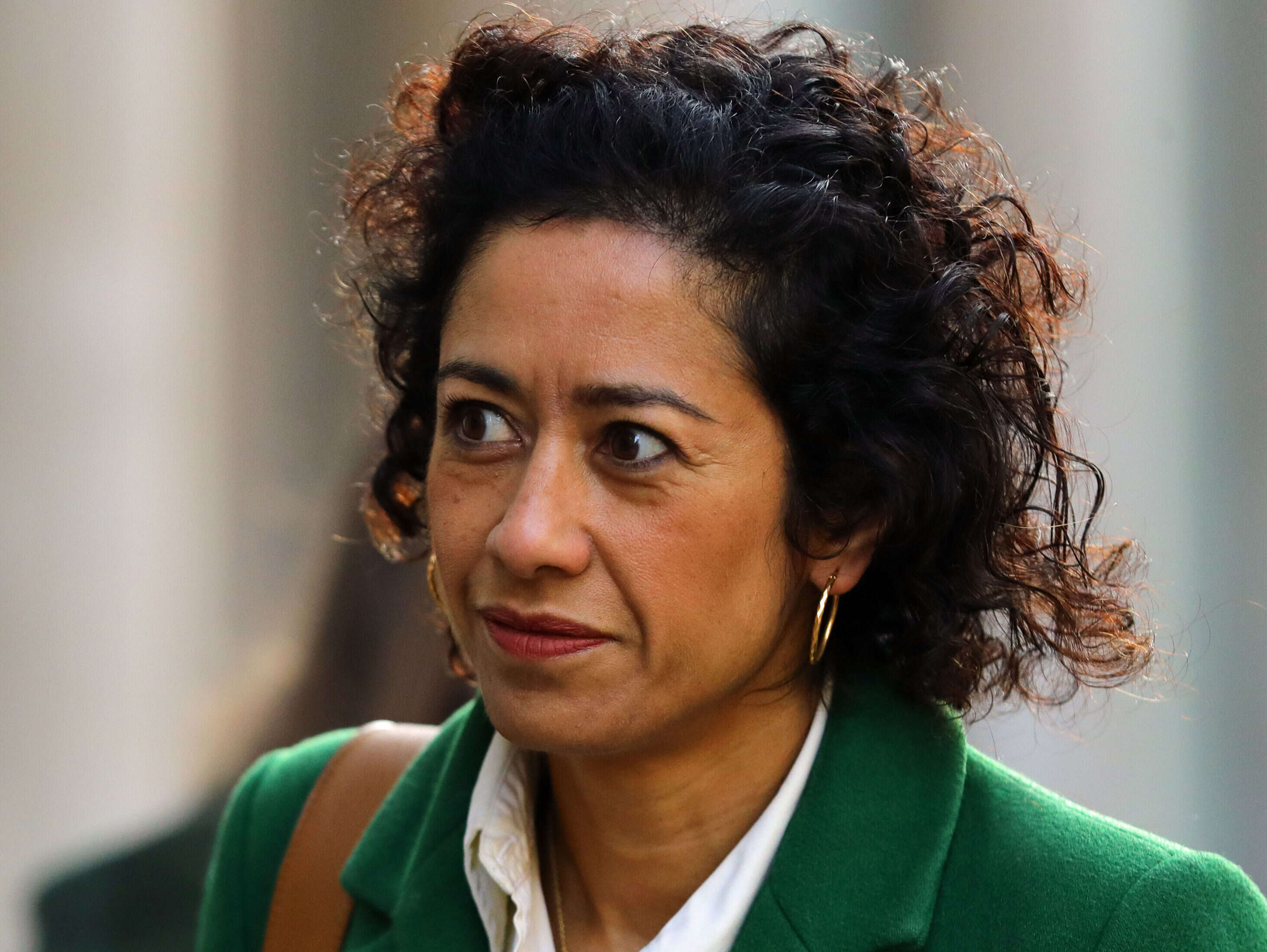
Samira Ahmed said she should get “danger money” for her job presenting Newswatch, claiming the BBC’s head of newsgathering had turned on her following an interview.
The journalist made the claim in a witness statement for her ongoing equal pay case against the BBC, which is being heard at an employment tribunal this week and is supported by the National Union of Journalists.
As presenter of Newswatch, Ahmed speaks to top BBC editorial figures in discussing audience views on the corporation’s news coverage, including the recent complaint against Breakfast’s Naga Munchetty.
Ahmed said that, after recording a “very recent” interview with Munro, he “turned on me for asking a question he didn’t like and then wrongly claimed I’d accused the BBC political editor Kuenssberg of being racist”.
“He was angry and took that out on me,” Ahmed said. “The studio crew were shocked by his behaviour and told me so.
“The BBC press officer present to watch the recording sent me an email after saying it had got a bit ‘heated’ and she hoped I would have a nice weekend; clearly a veiled admission that he had behaved inappropriately.
“I remember telling my editor that, frankly, I should get ‘danger money’ for having bosses attempt to intimidate me this way and John Munro had behaved in a similar way in 2014.”
Ahmed said the nature of Newswatch puts her in a “position of conflict or what might be perceived as conflict with the BBC by some”.
The 15-minute show, which airs on Friday on the BBC News Channel and again on Saturday on BBC One, was created in 2004 to show greater transparency around BBC editorial processes following the Hutton Inquiry.
Ahmed claims she should have been paid the same as Points of View presenter Jeremy Vine as the two programmes are equivalents.
Vine was paid nearly seven times more than her, earning £3,000 per episode when she earned £440 per episode.
The BBC has said the two shows operate in different markets – news and entertainment – and that they demand different skills, with Points of View requiring a presenter with a high profile.
In advancing her equal pay claims, Ahmed said: “I can be the focus of criticism from within the BBC if staff feel that the viewers’ criticisms are unfair or unjustified. Or who don’t like a question.
“This can be very personal. I am advocating for the viewers.
“The programme is to hold the BBC to account. This requires tact and diplomacy, an ability to understand issues and the potential significance to the BBC, a knowledge of the BBC hierarchy and its aims, knowledge of news journalism and the controversial issues in news journalism.
“It also takes some courage.”
Other claims made in Ahmed’s statement to the tribunal include that Vine was “gifted” his lunchtime BBC Radio 2 show in an opportunity she suggested may not be given to women.
“I was struck by how Jeremy was gifted the Radio 2 lunchtime show as a successor to Jimmy Young in 2003,” she said. “This was a controversial appointment at the time and led to many complaints.
“Prior to that he had been a news journalist with no experience or profile as an entertainment star. The BBC stuck by him and he was eventually cemented in the role. Women are not gifted these opportunities.”
Ahmed added that she “cannot understand how Jeremy Vine’s Radio 2 show can be used to justify such a large difference between my pay rate and his when Points of View and Newswatch are such comparable shows”.
She also suggested that “men are more likely to be seen as stars or at least stars that should be paid very highly”, pointing to the fact the list of the BBC’s top-paid talent is “predominantly male”.
Ahmed did not feature on the list of top-earning BBC talent earning more than £150,000 when it was first published under Government edict in 2017.
She has already been awarded a pay increase and backpay for her roles at Front Row on Radio 4 and Nightwaves on Radio 3.
But she claimed she was told by a senior BBC manager – whose name has been redacted from the public version of her witness statement – that “the BBC doesn’t do equal pay” in their initial response to her grievance.
Picture: Aaron Chown/PA Wire
Email pged@pressgazette.co.uk to point out mistakes, provide story tips or send in a letter for publication on our "Letters Page" blog
